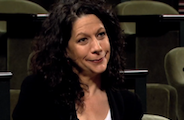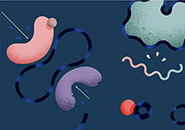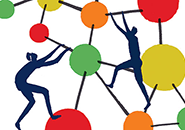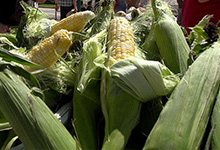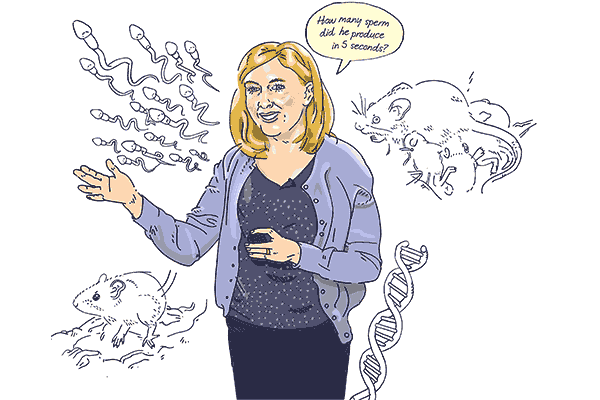When she lectures about sex determination to her Life Sciences 1b students, evolutionary geneticist Hopi Hoekstra gets personal. Really personal. She starts by scoping out the undergraduates in Harvard’s Science Center auditorium and picking a male student who says he’s not easily embarrassed. She stands beside him and asks the other 450-some students to watch him while counting to five in unison. After “... five,” Hoekstra asks for estimates of how many sperm the young man produced during the preceding few seconds. Then she delivers the answer: about 7,500.
“I try to get the students excited about the material before the lecture even starts,” says Hoekstra, an HHMI investigator at Harvard University. Hoekstra calls this “motivating the material.”
“Starting lectures with a story – from personal stories, to mysteries of the field, to historical facts – helps get the students’ imaginations going.” Without the motivation, Hoekstra says, “it’s just a bunch of facts.”
To set the stage for her lecture on epigenetics, she uses a family story. She projects a photo of her grandmother, who survived the 1944 Hongerwinter in Nazi-occupied Holland, and explains that her grandmother subsisted on tulip bulbs while pregnant with Hoekstra’s mother. When in utero, Hoekstra’s mother was forming the ovum from which Hoekstra herself would eventually develop. Through that egg, Hoekstra may have been directly affected by her grandmother’s privation. In other words, environmental signals might have triggered epigenetic changes in her mother’s ova – heritable changes, but ones that alter how genes are expressed rather than the DNA itself.
| Learn how epigenetics and orchestras are similar in this Nature video. |
“I’m part of this lineage,” Hoekstra tells the class. Then she shows a snapshot of her son, three-year-old Henry. “He’s the real test case,” she explains – a test case for the indirect effects of what his great-grandmother endured. Research has shown that epigenetic changes in people who suffered from malnutrition can predispose their descendants to diabetes and obesity.
It’s only then that Hoekstra says, “Let’s see how this works at the molecular level.” She’s pretty sure that if she’d skipped the story and simply announced, “Today’s lecture is about methylation” – one form of epigenetic alteration – her students would have been far less engaged.
Hoekstra’s research involves evolutionary changes in wild populations, such as deer mice. But she thinks a lot not just about evolution, but also about how to teach it. After every lecture, she jots comments on the blue folder holding her lecture notes – suggestions to herself such as, “Can move faster through first part” and “Leave more time for rat-licking examples.” In June 2014, Hoekstra was awarded a Harvard College Professorship, a five-year appointment that recognizes excellence in teaching.
| Hear about Hopi Hoekstra’s research on the genetics of behavior. |
She believes she’ll attract more students to science by demonstrating that biology research is very much a work in progress. For instance, last fall she informed her students that, as recently as two years ago, their textbook didn’t even have a chapter on epigenetics. “They think of everything as solved, but the doors to this have just opened. They can think, ‘Wow, there’s so much still to be discovered!’”
